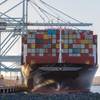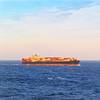DNV GL Updates Offshore Class Rules
DNV’s Enhanced Classification Rules for mobile offshore units presented in May have been further improved through a process of industry consultation and feedback. The final versions of the related DNV Offshore Standards have been released and are available now.
“Our aim has been to take class a new step forward by focusing on control, transparency and efficiency. In addition - the intention has been to ensure that the latest best practices and innovations are rapidly implemented by the industry. The end result will be improved safety,” said Kenneth Vareide, Director of Offshore Class at DNV GL.
Apart from the new and enhanced class rule format and the optional enhanced system notation, the release includes the industry’s first set of requirements for managed pressure drilling systems and function based winterization rules.
Advanced drilling techniques such as managed pressure drilling, a system for controlling the mud pressure in the reservoir, are becoming more prevalent on floating offshore units. “Such systems can be safety critical, and no standards or appropriate design codes for their safe development and use existed until now,” Vareide said. “The new standard includes requirements for managed pressure drilling systems, definitions of associated safety systems and requirements for well barriers and draw works.”
A second industry first in the release is in the form of the function based requirements in the new DNV Offshore Standard OS-A201 Winterization for Cold Climate. “We have introduced functional and performance-based requirements to enhance the previously prescriptive rules. This allows owners greater flexibility when selecting the winterization level and winterization temperature,” Vareide said.
The optional Enhanced Systems (ES) notation provides additional safety and reliability in a cost-effective manner, offering a clear package to owners and yards wishing to differentiate themselves in the market. One example of the optional enhanced ES notation coverage relates to the risk of fires in moon pool areas, which are not included in the IMO MODU Code.
“The Enhanced Rules’ updated technical content and structure provides predictability and increased transparency with regard to the Industry’s minimum requirements. This will not only improves safety, but will also give better control to newbuilding projects and delivery times,” Vareide said. “We like to see it as another good example from the service delivery you may expect from DNV GL.”
DNV GL anticipates further updates to the rules in 2014.














